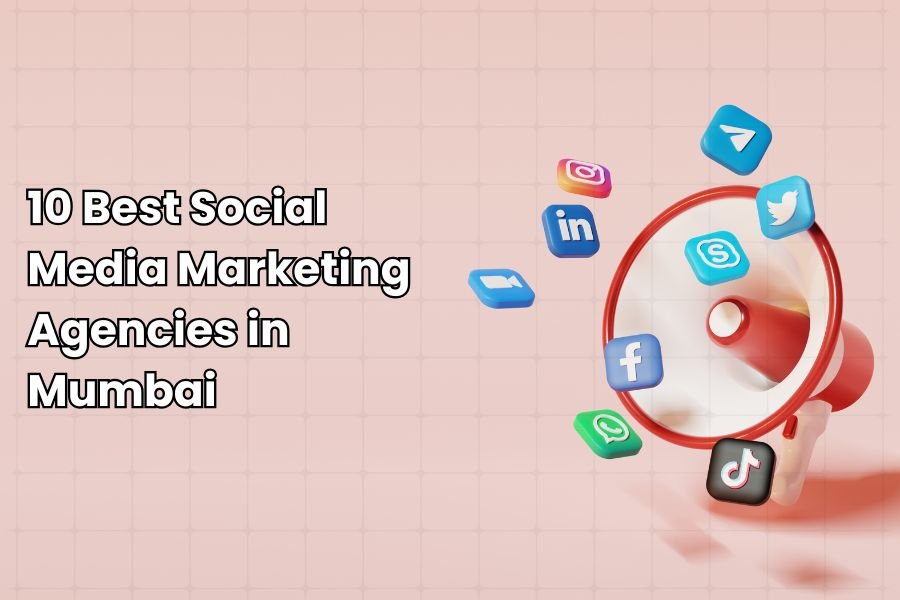5 Important Social Media Tips for Small Businesses
Introduction
In an era dominated by digital interactions, social media has evolved from a platform for personal connections to a powerful tool for businesses, particularly for small enterprises looking to establish their presence and compete in a crowded market. The ability to connect with a global audience in real-time has made social media an indispensable component of marketing strategies.
As businesses, regardless of size, recognize the importance of a robust online presence, mastering the art of social media becomes crucial for success.
Choose the Right Platforms
The first step in leveraging social media effectively for small businesses is strategically selecting the platforms that align with their goals. With an array of social media channels available, from the visually-centric Instagram to the professional landscape of LinkedIn, understanding the target audience is paramount. Knowing where the potential customers spend their time online ensures that efforts are concentrated on platforms most likely to yield positive results.
Moreover, the mantra of quality over quantity holds true in the realm of social media. Rather than spreading resources thinly across numerous platforms, small businesses should focus on the ones where their audience is most active. This strategic approach not only maximizes the impact of the content but also minimizes the time and resources spent on managing multiple accounts.
Create Engaging Content
In the ever-evolving landscape of social media, the phrase “Content is king” has become a mantra for businesses aiming to capture the attention of their target audience. Creating engaging content is not just about the visuals but also about telling a compelling story that resonates with your audience. Here’s a breakdown of key elements to consider when crafting content that captivates and connects:
1. Visual Appeal: Visual content is the backbone of social media engagement. Eye-catching images, graphics, and videos are more likely to stop users mid-scroll and encourage them to explore further. Investing time and resources in high-quality visuals pays dividends, as they contribute to the overall aesthetic of your brand and make your posts stand out in a cluttered social media feed.
2. Compelling Captions and Copy: While visuals grab attention, the accompanying captions and copy provide context and personality. Craft concise and compelling captions that complement your visuals and convey the intended message. Whether it’s a witty remark, a thought-provoking question, or a call-to-action, the language you use should align with your brand’s tone and resonate with your audience.
3.Diversify Content Types: Variety is the spice of life, and the same applies to social media content. Experiment with different content types, including images, videos, infographics, polls, and more. This not only keeps your feed dynamic but also caters to the diverse preferences of your audience. A mix of educational, entertaining, and promotional content ensures that your social media presence remains engaging and valuable.
4. Timeliness and Relevance: Stay attuned to current events, trends, and conversations within your industry. Timely and relevant content not only demonstrates your business’s awareness but also positions it as a thought leader. Capitalize on trending hashtags, participate in relevant challenges, and share content that reflects your brand’s ability to stay current and adapt.
5. User-Generated Content (UGC): Encourage your audience to become content creators themselves. User-generated content not only provides a fresh perspective but also fosters a sense of community around your brand. Run contests, ask for reviews, or simply invite followers to share their experiences with your products or services. Reposting UGC not only acknowledges your customers but also adds authenticity to your brand.
Consistent Branding
In the dynamic world of social media, where attention spans are fleeting, and users are bombarded with a constant stream of content, creating a lasting impression is paramount. This is where consistent branding comes into play for small businesses seeking to make their mark in the digital landscape.
1. Cohesive Brand Identity: Creating a cohesive brand identity involves more than just having a visually appealing logo. It encompasses the entire visual and tonal representation of a brand across all online platforms. From the profile picture to the cover photo, and even down to the choice of colors and fonts in posts – every element should contribute to a unified brand image. This ensures that users can easily recognize and associate content with a specific business, fostering trust and familiarity.
2. Visual Consistency: In the visual-driven world of social media, images and graphics are powerful tools for conveying brand messages. Small businesses should maintain a consistent visual style across their posts. Whether it’s the use of a specific color palette, a particular filter, or a distinctive graphic style, these elements should be consistently applied. Visual consistency not only enhances brand recognition but also creates a professional and polished image.
3. Tone and Messaging: Consistency in branding extends beyond visuals to the tone and messaging used in captions, comments, and other forms of communication. The language employed should reflect the brand’s personality and values consistently. For instance, if a brand is known for its friendly and informal tone, this should be maintained across all interactions. Consistency in communication builds a brand voice that resonates with the target audience, making the brand more relatable.
4. Building Trust and Recognition: Consistent branding is not just about aesthetics; it’s about building trust and recognition. When users consistently see a brand represented in a certain way, it creates a sense of reliability. This, in turn, contributes to the establishment of brand authority and loyalty. Users are more likely to engage with and remember a brand that maintains a consistent and recognizable presence on social media.
Utilize Social Media Advertising
In the dynamic landscape of social media, where algorithms frequently change and organic reach may not always suffice, small businesses can gain a significant advantage by incorporating social media advertising into their marketing arsenal. Unlike traditional advertising, social media ads provide a level of precision and targeting that can be immensely beneficial, especially for businesses with modest budgets.
Targeting Options for Reaching Specific Audiences:
One of the standout features of social media advertising is its unparalleled targeting capabilities. Businesses can define their audience based on various parameters such as demographics, interests, behaviors, and even online activities. For instance, a local bakery aiming to promote its new gluten-free offerings can precisely target individuals in the vicinity who have shown an interest in gluten-free diets or related topics.
Moreover, the ability to retarget users who have interacted with a business in the past is a powerful tool. If someone visited a website or engaged with a social media page, advertisers can strategically show them relevant ads, keeping the business at the forefront of their minds.
Measuring and Analyzing the Effectiveness of Social Media Ads:
Another advantage of social media advertising is the wealth of analytics and insights provided by these platforms. Small businesses can track the performance of their ads in real-time, allowing for quick adjustments to optimize campaigns. Metrics such as click-through rates, conversion rates, and engagement metrics provide valuable feedback on the effectiveness of the ad content and targeting strategy.
This data-driven approach not only helps in refining current campaigns but also informs future advertising strategies. Small businesses can identify what works best for their audience, allowing for continuous improvement and ensuring that each advertising dollar contributes to tangible business outcomes.
Engage with Your Audience
Engaging with your audience is not just a passive aspect of social media management; it’s an active strategy that can significantly contribute to the growth and success of your small business. Here’s a deeper exploration of the key components involved in effectively engaging with your audience:
a. Responding to Comments and Messages Promptly:
One of the fundamental ways to foster engagement is by promptly responding to comments and messages. Social media is a two-way street, and when followers take the time to engage with your content, responding in a timely manner not only acknowledges their efforts but also demonstrates that your business values its community.
Consider every comment and message as an opportunity to build a connection. Whether it’s a simple thank-you or a more detailed response to a question, acknowledging your audience makes them feel heard and appreciated. This engagement contributes to a positive perception of your brand and encourages continued interaction.
Moreover, responding promptly is essential for maintaining an active and dynamic online presence. Social media algorithms often favor content that receives high engagement, and timely responses can contribute to increased visibility, potentially reaching a broader audience.
b. Encouraging User-Generated Content:
User-generated content (UGC) is a powerful tool for engagement. Encouraging your audience to create and share content related to your brand not only provides authentic testimonials but also builds a sense of community around your products or services. This can be achieved through various strategies, such as:
- Contests and Challenges: Create fun and relevant challenges that encourage your followers to showcase their creativity. This not only boosts engagement but also generates a stream of user-generated content.
- Hashtag Campaigns: Develop and promote branded hashtags that align with your business and encourage followers to use them when posting about your products or services. This helps in curating and showcasing user-generated content.
- Highlighting Customer Stories: Share success stories or experiences from your customers. This not only acknowledges their loyalty but also provides social proof, influencing others to engage with your brand.
c. Running Contests and Giveaways:
Contests and giveaways are classic engagement boosters. By offering incentives such as discounts, free products, or exclusive access in exchange for specific actions (like sharing a post, tagging friends, or following your account), you create a buzz around your brand. These activities not only drive immediate engagement but also attract new followers who are interested in participating.
When running contests, ensure that the rules are clear, the prizes are enticing, and the entry requirements align with your marketing objectives. This not only encourages participation but also ensures that the engagement generated aligns with your business goals.
Conclusion
In conclusion, the power of social media for small businesses cannot be overstated. RK Media understands the significance of a well-crafted social media strategy in driving business growth. By knowing your audience, maintaining consistent branding, creating engaging content, strategically utilizing paid advertising, and monitoring performance, small businesses can leverage the full potential of social media to connect with their audience and achieve sustainable growth. As RK Media, we encourage businesses to embrace these social media tips and tailor them to their unique needs, creating a dynamic online presence that resonates with their target audience. Social media is a dynamic landscape, and by staying informed and adaptable, small businesses can position themselves for success in the digital age.
Image Reference : Unsplash | Freepik
Disclaimer: All trademarks, logos, and brand names are the property of their respective owners. All company, product, and service names used in this website are for identification purposes only. Use of these names, trademarks, and brands does not imply endorsement.

















